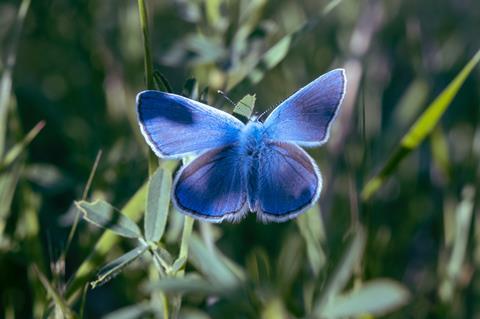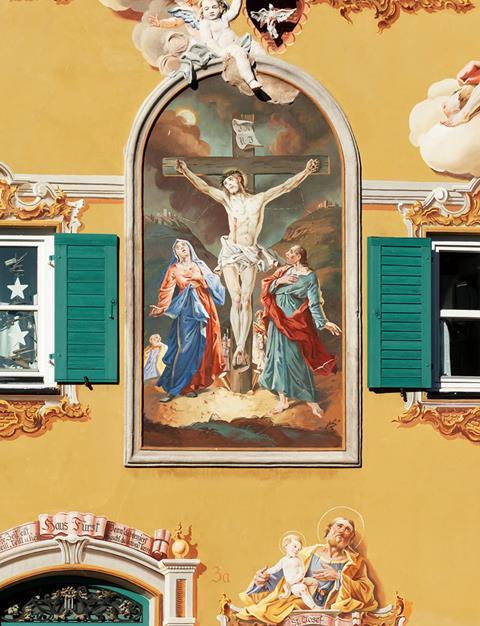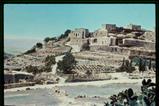Elaine Storkey looks at what the Bible says about God’s love of creation, his ownership of it and what our responsibility towards it should be

Study verses: Exodus 19:5 and Leviticus 25:23
I have a friend whose family has owned a large estate of land for some centuries. A few years ago he and his wife became Christians, and almost immediately he started to ask fundamental questions about what attitude he should have towards his land. Reading the biblical account of creation, as well as many of the Psalms, brought him into a deeper understanding of his relation both to God and to the land he had inherited. Now his sense of responsibility has changed. It is no longer one simply of respecting past generations of his family and maintaining the economic viability of what they had handed down to them. It is one of using the land – and everything else he possesses – in a way that honours God. For him, this means not producing waste that goes to landfill, or flushing sewage into the river; it means being careful about the health of the soil and the tree roots and maintaining the wildlife that lives in his forests; it means not producing greenhouse gases by unnecessary use of vehicles.
Many people say they find God in the natural world more than they find him in churches
It also means being generous and hospitable with his land – finding ways to allow other people to share its beauty and productivity. As someone now responsible to God, my friend thought through everything he did on the estate and submitted it to God in prayer. He has found this has also been an act of witness. When I was invited to their stately home, I was struck by a declaration that he had pinned on the notice board of the estate office. It reads: “I belong to this land. But this land does not belong to me.”
What my friend now knows, and what he wants everyone else to know, is that God has ownership over all of creation, including his estate, and that we human beings are simply stewards and caretakers of what God has entrusted to us. This is an echo of both Exodus 19.5 and Leviticus 25:23, where God tells his people: “The whole earth is mine…the land is mine; with me you are but aliens and tenants” (NRSV).
God revealed in nature
My landowning friend discovered so much in the Bible that speaks about God’s ownership. The psalmists, the prophets, even those who recorded the Law, all state that God alone is creator and the creation belongs to him. In Psalm 19 creation’s own voice praises God: “The heavens declare the glory of God; the skies proclaim the work of his hands” (v1). In Psalm 50, God discloses his knowledge and intimacy with the creation: “For every animal of the forest is mine, and the cattle on a thousand hills. I know every bird in the mountains, and the insects in the fields are mine” (vv10-11).
The book of Job tells us that in God’s hand “is the life of every creature” (Job 12:10) and it is certainly easy to see God in nature. The exquisite delicacy of a butterfly’s wings, painted with such rich colours and patterns, points so clearly to a creator who loves beauty and fragility. The enormous power of a volcano, throwing tons of red molten rock from its summit to cascade as lava down the valley, points to a creator whose power is unmeasurable. We cannot begin to count the number of species that exist in God’s world – around two and a half million live in the ocean alone. When we look at fish and sea creatures, birds and animals and the incredible biodiversity of what exists, we find God’s creative work overwhelming.
During our generation we have seen pollution of land, water, oceans and air, and the disappearance of animal and plant species of all kinds
I have met many people who say that they find God in the natural world more than they find him in churches, and I understand that. Even Paul tells us that we can see God’s invisible attributes clearly in the things he has made (Romans 1:20), so we are without excuse when we don’t believe in him. The challenge is to make our churches places that echo the same sense of awe and gratitude to the Creator as nature does.
Once I was asked to lead a Bible meditation walk in the Yorkshire Dales, for people who weren’t churchgoers. We stopped three times to read and reflect on Bible passages and, after two hours walking, we got to the top of the hill and saw the magnificence of the undulating view in front of us. One of our group asked me, shyly, if we might sing something together and suggested ‘He’s got the whole world in his hands.’ We did sing, quietly at first, and then again, at the top of our voices. It was a wonderful, shared moment of deep spiritual assent to God’s ownership of creation.

Accepting our responsibility
Being God’s tenants of creation, as Leviticus says, is more than appreciating God in nature. It is accepting our own responsibility. Genesis 2 sums it up when the first human is told to “till” and “keep” creation (v15, NRSV). Two different tasks are highlighted here. ‘Tilling’ is similar to farming – we are to make creation productive. Our duty is to ensure that it produces food for the different species that live in it – including ourselves. But ‘keeping’ is something bigger. In the biblical languages it means guarding, looking after, taking care of creation. These two tasks need to go together. We are to make the creation productive, so it gives the best yield it can for our needs and those of other species. But we are to do this in a way that also sustains and respects it and ensures its own survival and good health.
So how are we doing on a global scale? Frankly, very badly. As the world’s population has grown, we have had more mouths to feed, and therefore much more ‘tilling’ to do. We have developed the technology to till the land on a mass scale to produce vast amounts of crops and meat. But we have ignored the requirement for the care of creation. Instead we have dominated it, exploited it for profit, subjected animals to degradation in cruel forms of factory-farming and plundered those areas of creation that make us rich while discriminating against the poor. The consequences are large-scale, self-centred exploitation and destruction of the natural world, with many tragic consequences.
During our generation we have seen pollution of land, water, oceans and air, and the disappearance of animal and plant species of all kinds. We’ve experienced an increase in the temperature of the earth, melting of glaciers and permafrost, acid rain, greater water-borne diseases, an increase in the level of the oceans and unpredictable climate change. Those who have read the Apocrypha might recognise some of the prophecies in the writings of Esdras, where we are warned that fish will be washed up on the shores of the Dead Sea, the earth will break open in many places and water will become salty (2 Esdras 5:7-9). Paul himself writes of creation “groaning” waiting to be set free (Romans 8:22). We are living with the terrible results of human sin against creation, and a failure to be responsible tenants.
How should we respond to the environment as followers of Jesus?
Some Christians still ignore these responsibilities, because they have the kind of theology that sees all this as ‘secular’ and believe that they should focus on the ‘spiritual’ or ‘sacred’ areas of life. But the Bible doesn’t offer us this distinction. All of life belongs to God, and caring for creation is as sacred as singing hymns when we do it in faithfulness towards God and in love for Jesus.
Thankfully, many more Christians do take God’s call in this area seriously and have begun initiatives that cut down on waste, greenhouse gas emissions or over-consumption. Things as simple as harvesting rainwater, turning food waste into compost, cutting down on energy consumption, recycling clothes, avoiding plastic waste, shrinking our carbon footprint and eating less meat all benefit the environment. Some people go even further, joining environmental groups that work at a community level, or get involved in advocacy to encourage governments and businesses to take change seriously.
We are challenged when people who are not believers really do care about creation and see themselves as responsible for the good health of the planet. For some it has become the driving passion of their lives and they approach it with sacrificial commitment. When we as Christians join them and share their love and concern we begin to build bridges and open up new connections.
People who have never been interested in Church, the Bible or following Jesus are often surprised to see their love for the environment mirrored in our faith. For the sins Jesus died to free us from include those of neglect and abuse of what God has entrusted to us. And when our words of witness are demonstrated in our work to restore God’s creation, they become a much more powerful testimony to God’s own redemptive love in Jesus.

































No comments yet